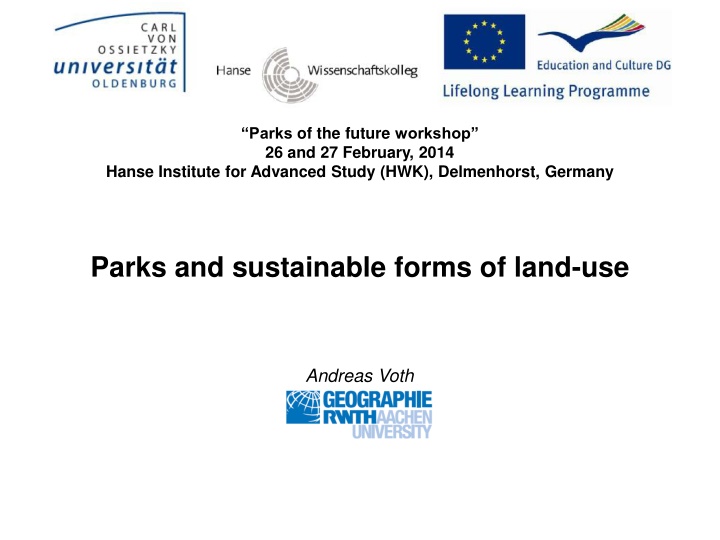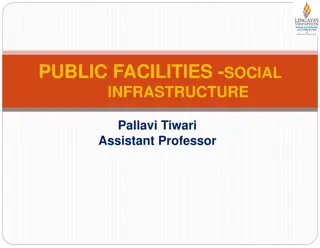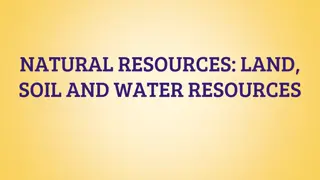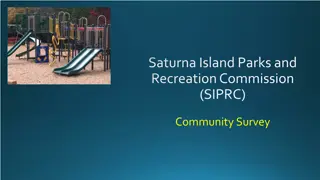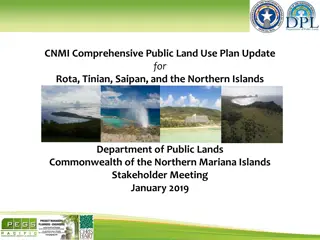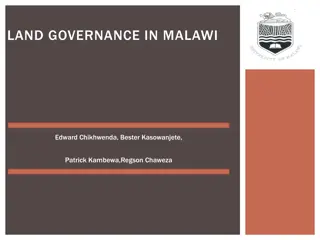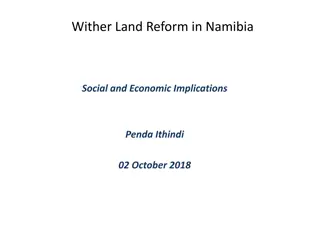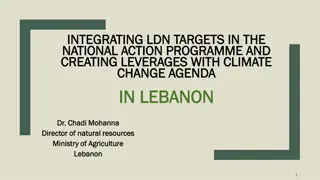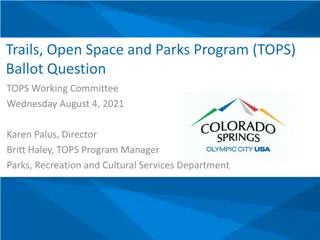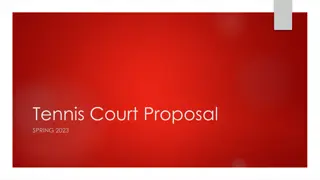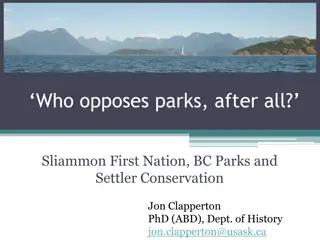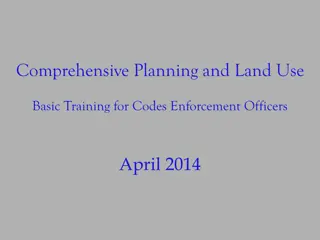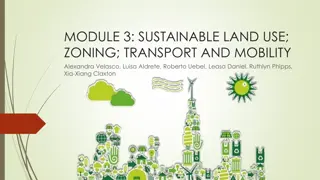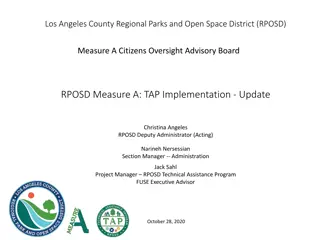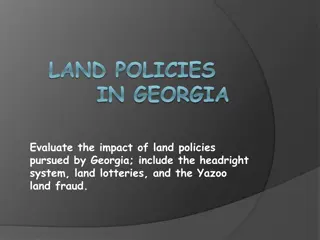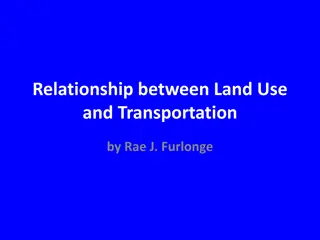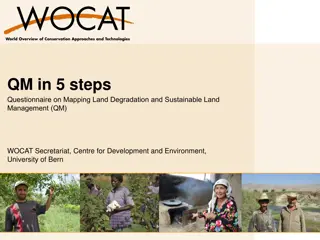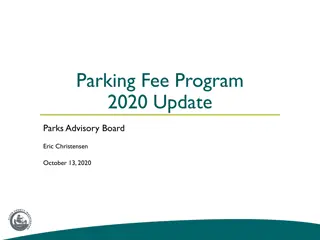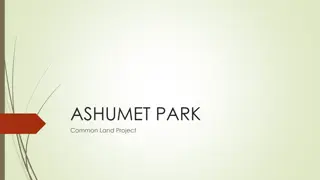Parks of the Future Workshop: Sustainable Land-Use
Thinking about sustainable land-use in protected areas, exploring linkages with general research fields, discussing material and immaterial services provided by PAs, tourism, innovation in regional economy, regional identities, handling regional and global change, participation, and governance.
Download Presentation

Please find below an Image/Link to download the presentation.
The content on the website is provided AS IS for your information and personal use only. It may not be sold, licensed, or shared on other websites without obtaining consent from the author.If you encounter any issues during the download, it is possible that the publisher has removed the file from their server.
You are allowed to download the files provided on this website for personal or commercial use, subject to the condition that they are used lawfully. All files are the property of their respective owners.
The content on the website is provided AS IS for your information and personal use only. It may not be sold, licensed, or shared on other websites without obtaining consent from the author.
E N D
Presentation Transcript
Parks of the future workshop 26 and 27 February, 2014 Hanse Institute for Advanced Study (HWK), Delmenhorst, Germany Parks and sustainable forms of land-use Andreas Voth
Thinking about sustainable land-use in protected areas unsustainable land-use outside protected areas aspects of sustainability ecological economical social cultural sustainable land-use in protected areas type of land-use agriculture forestry tourism housing other activities considering different categories ecosystems zoning concepts old/new parks central or marginal localisation the understanding of sustainability changes: in space in time conflicting perspectives of sustainability? different actors local / non-local private / public forms of governance effects of land-use short term / long term biodiversity landscape socio-economics cultural heritage acceptance methods to measure sustainability? different forms traditional / modern extensive / intensive
Linkages between sustainable land-use and general research fields* concerning protected areas 1. Material and immaterial services provided by PAs What is the value given by society to landscapes resulting from land-use practises or their abandonment? 2. Tourism and recreation What is known about the interrelations between tourism and different forms of sustainable land-use in PAs? What about land-use as a cultural heritage in PAs? 3. Innovations in regional economy in accordance with conservation and landscape protection objectives Which forms of land-use contribute to regional economy and to park s objectives as well? How could they be promoted? 4. Images and regional identities How do specific forms of land-use and cultural landscape work as factors of regional identity / regional marketing? 5. Handling regional and global change Which land-use changes depend on dynamics on the regional/global level? 6. Participation and governance Role and structures of land-use planning and management * Workshop in St-Pierre de Chartreuse 2011; Hammer et al. (2012): Societal research perspectives in protected areas in Europe.
Thinking about sustainable land-use in protected areas there are still a lot of questions Who decides which forms of land-use are sustainable ? What are the main factors favouring or limiting sustainable land-use ? What is the role different actors play within supply chains in favouring or limiting sustainable land-use systems ? How could consumers and park visitors contribute to maintain sustainable forms of land-use ? How could traditional forms of sustainable land-use be recovered ? How could sustainable forms of land-use be stimulated or made attractive ? How could regional labelling and marketing favour sustainable land-use ? How do different forms of land-use depend on each other ? How is knowledge of sustainable land-use techniques transmitted ? How are sustainable forms of land-use influenced by modern changes (demographic change, climate change, political frameworks, financial crisis, changing demand for products and services, technological change, environmental consciousness, etc.) ?
